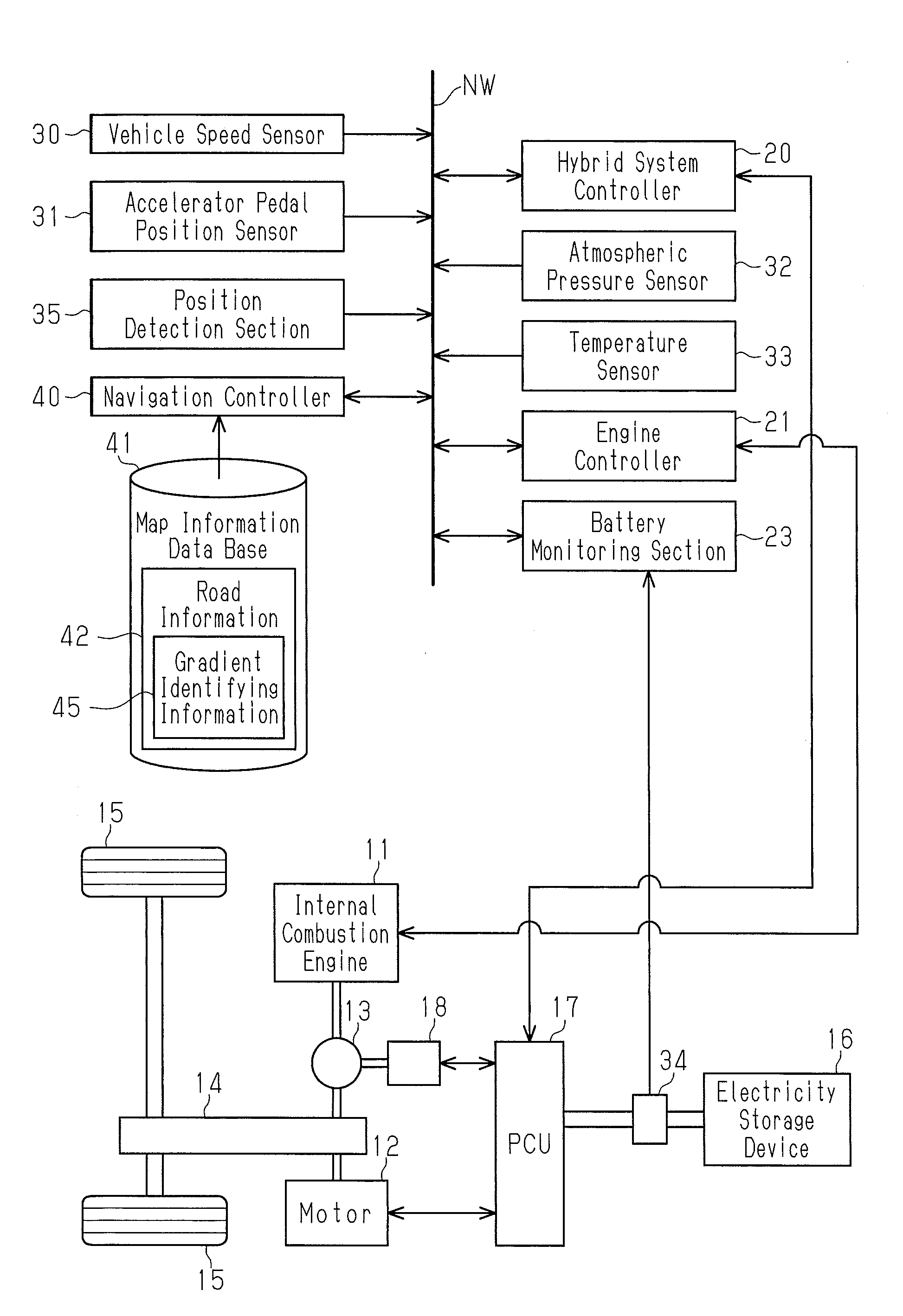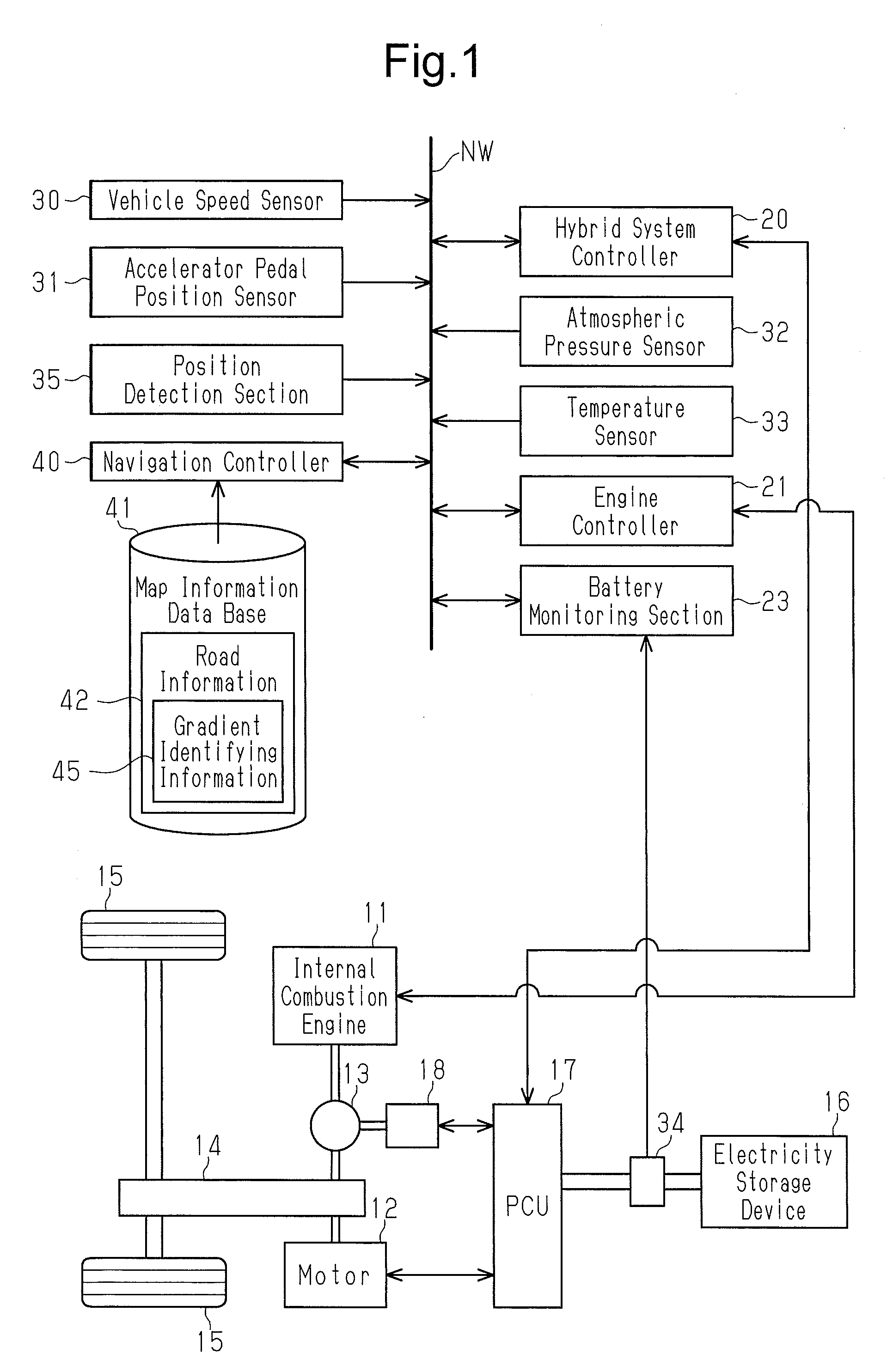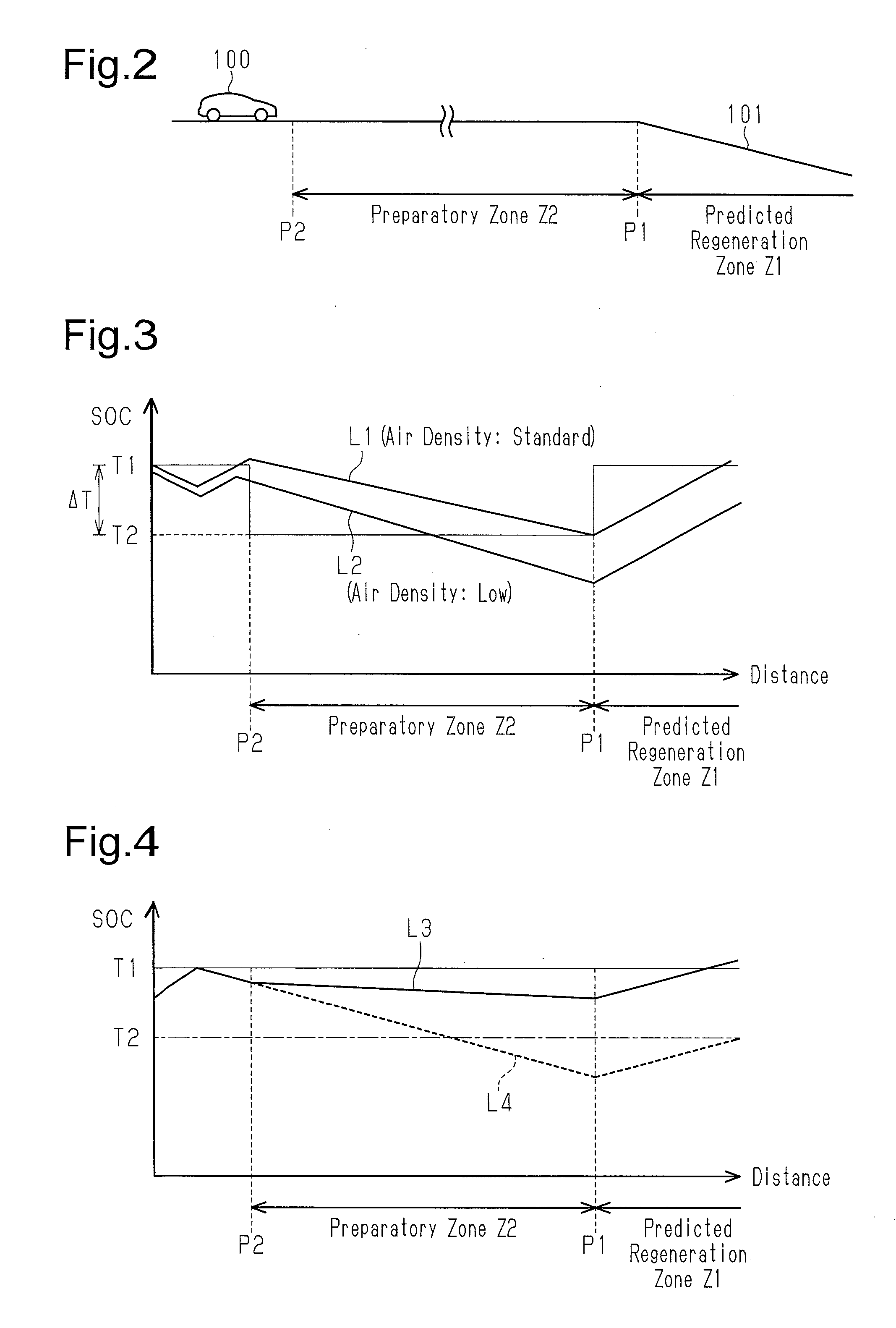Vehicle control device
a vehicle control and control device technology, applied in the direction of battery/fuel cell control arrangement, battery/cell propulsion, transportation and packaging, etc., can solve the problems of lowering engine output, ineffective control performed by the above described vehicle control device, and inability to change the soc of the electricity storage device, etc., to prevent the energy generated by regenerative braking
- Summary
- Abstract
- Description
- Claims
- Application Information
AI Technical Summary
Benefits of technology
Problems solved by technology
Method used
Image
Examples
Embodiment Construction
[0027]A vehicle control device according to a first embodiment will now be described. In the present embodiment, description will be given assuming that the vehicle is a hybrid vehicle, which is capable of charging an electricity storage device using the power of the internal combustion engine and regenerative braking.
[0028]As shown in FIG. 1, the vehicle includes an internal combustion engine 11 and a motor 12 as drive sources. The engine 11 is mechanically coupled to drive wheels 15 via a power split mechanism 13 and a speed reducing mechanism 14. The motor 12 receives electricity from an electricity storage device 16, which is a drive source, via a power control unit (PCU) 17, which includes an inverter section circuitry and a converter section circuitry. The electricity storage device 16 is a rechargeable battery. The motor 12 is coupled to the drive wheels 15 via the speed reducing mechanism 14. The motor 12 is capable of performing regenerative braking to generate electricity ...
PUM
 Login to View More
Login to View More Abstract
Description
Claims
Application Information
 Login to View More
Login to View More - R&D
- Intellectual Property
- Life Sciences
- Materials
- Tech Scout
- Unparalleled Data Quality
- Higher Quality Content
- 60% Fewer Hallucinations
Browse by: Latest US Patents, China's latest patents, Technical Efficacy Thesaurus, Application Domain, Technology Topic, Popular Technical Reports.
© 2025 PatSnap. All rights reserved.Legal|Privacy policy|Modern Slavery Act Transparency Statement|Sitemap|About US| Contact US: help@patsnap.com



